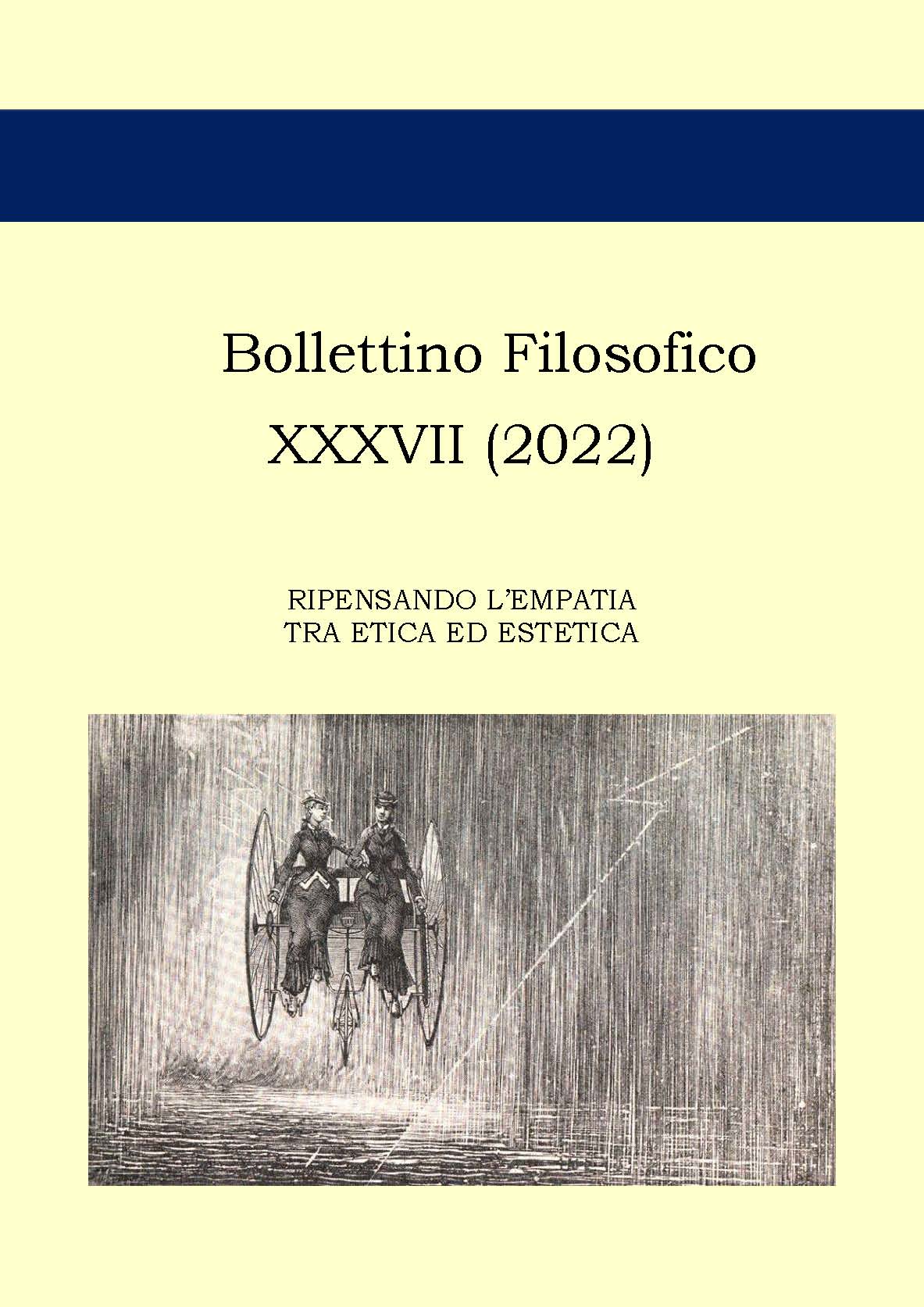«…This Phenomenon, Which is None too Happily Designated as “Empathy”». Martin Heidegger’s Critique of Empathy
Abstract
Martin Heidegger offers an original and valuable contribution to the debate around empathy. In what follows I am going to provide an account of his critique of empathy in terms of mental transposition or projection, drawing on the resources from the early Freiburg courses, Being and Time and the Zollikon Seminars. This critique of the notion of empathy is rooted in an account of subjectivity conceived not as an isolated self, but rather as a Dasein ecstatically open, embedded in the world, and grounded in the ontological structure of Mitsein, and, more in general, in Heidegger’s critique of western metaphysics, especially the notion of the isolated ego as the foundational point of western philosophy. Finally, I will show how the intersubjective nature of Dasein as Miteinandersein is related to the issue of authenticity and has important consequences in our social life.
Keywords: Empathy, Ethics, Heidegger, Intersubjectivity, Medicine
Downloads
The author retains the copyright of his work whilst granting anyone the possibility “to reproduce, distribute, publicly communicate, publicly exhibit, display, perform and recite the work”, provided that the author and the title of the journal are cited correctly. When submitting the text for publication the author is furthermore required to declare that the contents and the structure of the work are original and that it does not by any means compromise the rights of third parties nor the obligations connected to the safeguard of the moral and economic rights of other authors or other right holders, both for texts, images, photographs, tables, as well as for other parts which compose the contribution. The author furthermore declares that he/she is conscious of the sanctions prescribed by the penal code and by the Italian Criminal and Special Laws for false documents and the use false documents, and that therefore Bollettino Filosofico is not liable to responsibilities of any nature, civil, administrative or penal, and that the author agrees to indemnify and hold Bollettino Filosofico harmless from all requests and claims by third parties.
